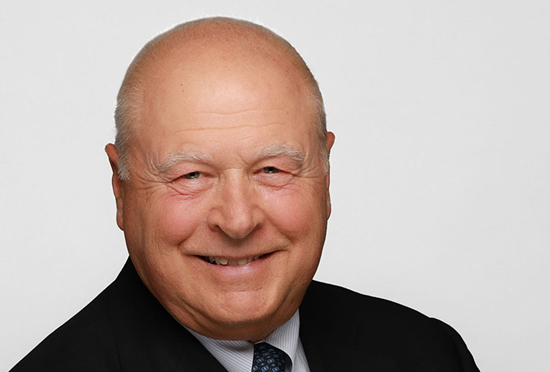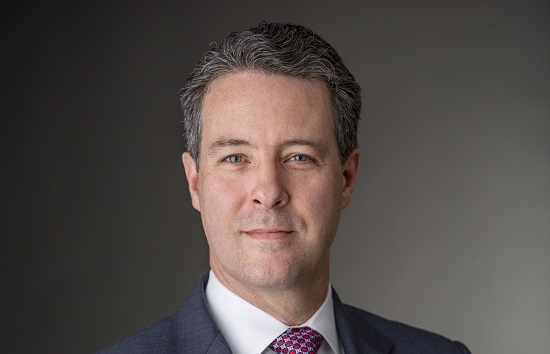ANALYSIS: MetroTrade eyes opportunity in US retail futures broking

The US futures brokerage market has been contracting for decades with that business becoming increasingly concentrated among fewer and fewer firms but there have been recently some signs of new entrants buoyed by higher interest rates and the opportunity of new technology.
On the institutional side of the business, Clear Street launched this month a US equities and options clearing service while Hidden Road extended in January its offering to include futures and options through its US futures commission merchant (FCM).
On the retail side too, there is the prospect of increased competition, most recently from a new Chicago-based broker called MetroTrade which said last week it will start trading in the middle of this year after securing approval from US regulators to open as an introducing broker.
The president of the firm is David Klotz who was latterly the head of futures commission merchants and chief revenue officer at Crypto.com having previously worked at Phillip Capital, Mizuho Securities and ABN Amro.
He told FOW: “There is a great opportunity coming in retail futures based on a confluence of factors. One: Webull just became an FCM so they are offering US futures to their clients. Two: Robinhood just bought an FCM license from Marex so clearly they are going to be ramping up their futures exposure.
“What we haven’t seen in the last two years since Ninja acquired Tradovate is anyone new coming into retail futures at scale. That’s what we are focusing on, we want to be able to give customers another opportunity to trade.”
MetroTrade, set to launch “this summer”, is backed by Swiss private equity firm Andromeda Capital, which already owns stakes in broker AgenaTrader and Change Securities, a trading firm.
The firm can also draw on the expertise of Ingmar Mattus, the founder of Andromeda, the joint founder of MetroTrade with Klotz and the co-founder of Tickmill, the trading firm.
Mattus said: “In all other markets, you have a lot of competition but in the US retail futures market, there are only a handful of players and this is never sustainable. This market has been screaming out for new participants. On the technology front, the entire space is so stagnant, people are still trading on platforms that are 20 years old whereas the new generation of traders want better platforms and a wider range of products.”
Mattus said US retail traders are adept in trading equities but their access to leveraged products such as derivatives has been limited.
The MetroTrade co-founder added: “A retail trader 20 years ago and today are completely different animals. The retail trader today is much more sophisticated because they have access to so much more information and they can learn so fast so they want more exposure to a wider range of products.”
Klotz, who has traded himself through many of the main US retail brokers, said there are various opportunities to differentiate the MetroTrade service from the incumbents, including technology and fees.
He said: “I don’t break-down FCMs by bank or non-bank, rather I think of them in terms of haves or have-nots in technology. There are FCMs that have the technology to be flexible and open, and there are those that don’t.
“We’re going to use third party trading software primarily because it’s the fastest to market. One of the advantages we have is that we’re starting new, we don’t have a technology stack that we need to workaround or trash and start over, we are starting from scratch.”
Klotz said there is also an opportunity for MetroTrade to set itself apart from the competition by offering fee transparency.
The president said: “One of the things that drives me crazy is when people quote a commission rate but then you have to click on an asterisk to find out that that doesn’t include order routing fees or market data fees or exchange and NFA (National Futures Association) fees. If I have to go to three different places on a website to find out what I am being charged, that drives me insane.”
Klotz added: “We’re still working through how we’re going to present it but I want it all on one page and everyone to be very cognizant about what a transaction is going to cost and what we’re charging.”
MetroTrade said last week it will start with CME futures before opening up other markets over time.
Klotz said: “The fact that micro futures are a growing product class is important. We think that’s a great way to get into trading futures at a relatively low cost. We’re going to offer micros but we’re going to open up the CME to any product the clients want to trade.”
He added: “Zero-day options are the buzzword and we need to be cognizant of that and they are in our plan. They are not a day one opportunity but we would like to have them out by January 2025.”
MetroTrade said it secured last week approval from the Commodity Futures Trading Commission to act as an introducing broker, meaning it will use FCMs to clear business transacted by MetroTrade clients.
Klotz said: “It’s a scale business at this moment. The more throughput we can get, the better deals we’ll get from FCMs, three of which we are already speaking with.”
Looking ahead, the MetroTrade president said the firm would be open to geographic expansion if there were sufficient interest.
“We’d like to grow globally but it’s based on customer demand. If we are start getting an influx of customers from EMEA or the UK, then we’ll have to address that from a jurisdictional point of view,” Klotz added.
Found this useful?
Take a complimentary trial of the FOW Marketing Intelligence Platform – the comprehensive source of news and analysis across the buy- and sell- side.
Gain access to:
- A single source of in-depth news, insight and analysis across Asset Management, Securities Finance, Custody, Fund Services and Derivatives
- Our interactive database, optimized to enable you to summarise data and build graphs outlining market activity
- Exclusive whitepapers, supplements and industry analysis curated and published by Futures & Options World
- Breaking news, daily and weekly alerts on the markets most relevant to you



